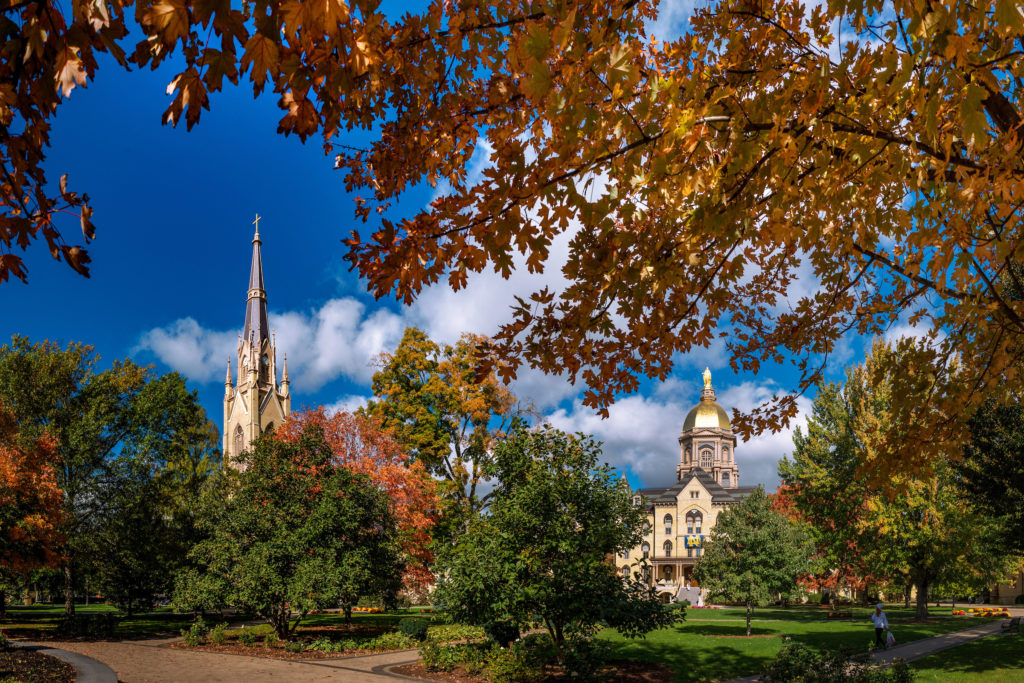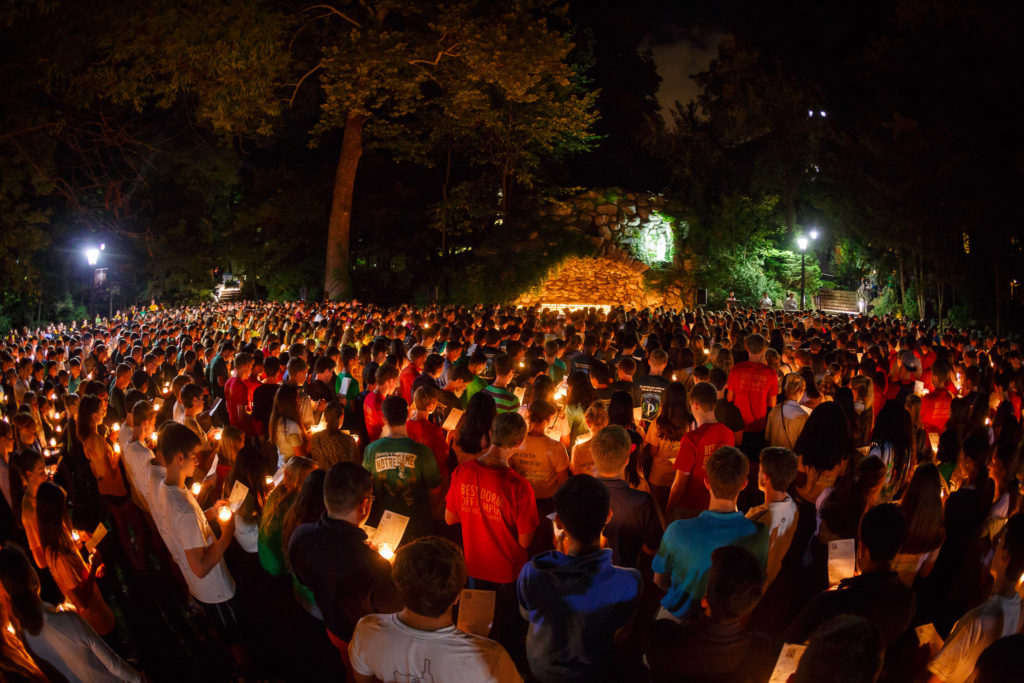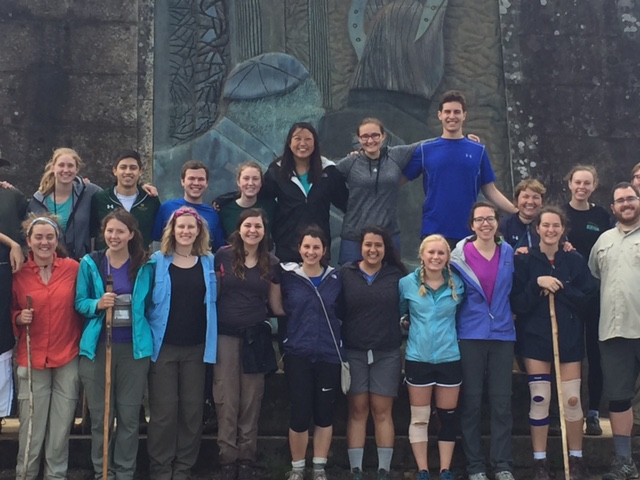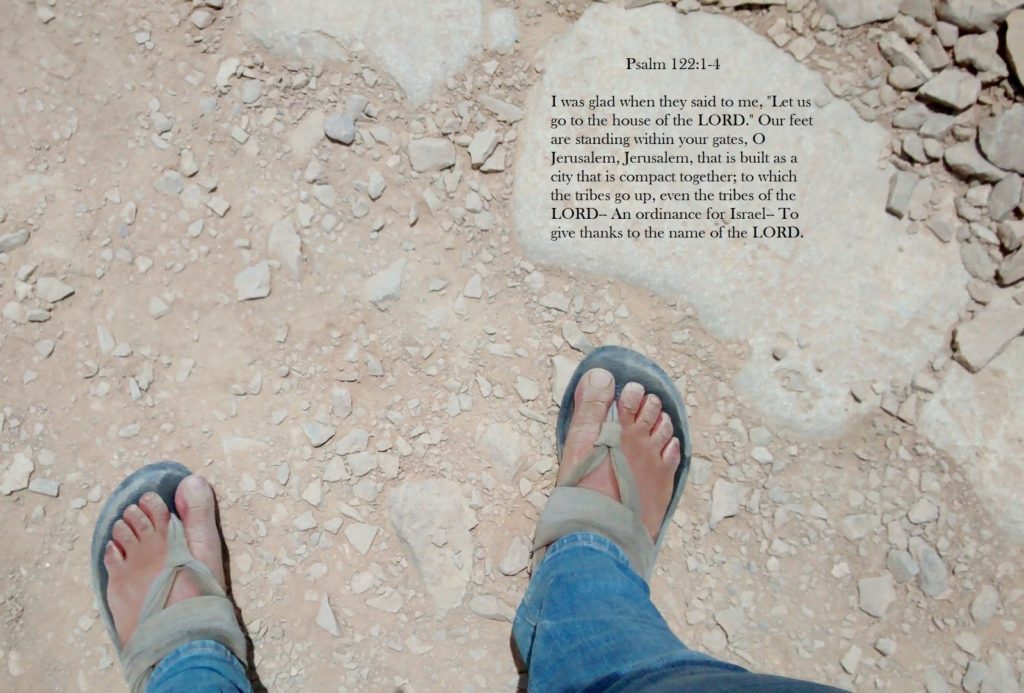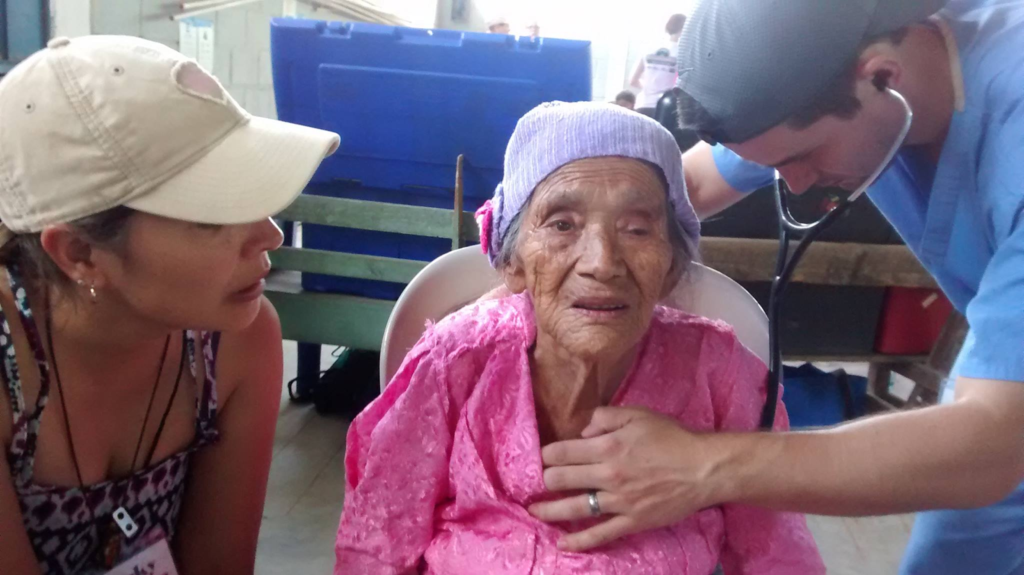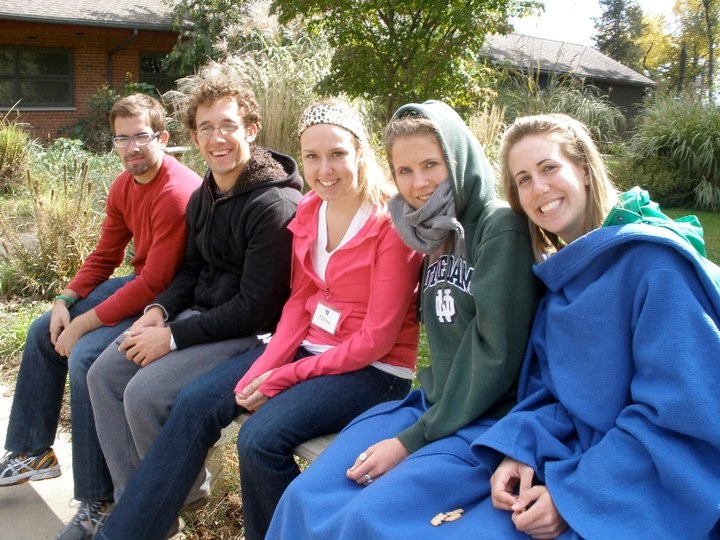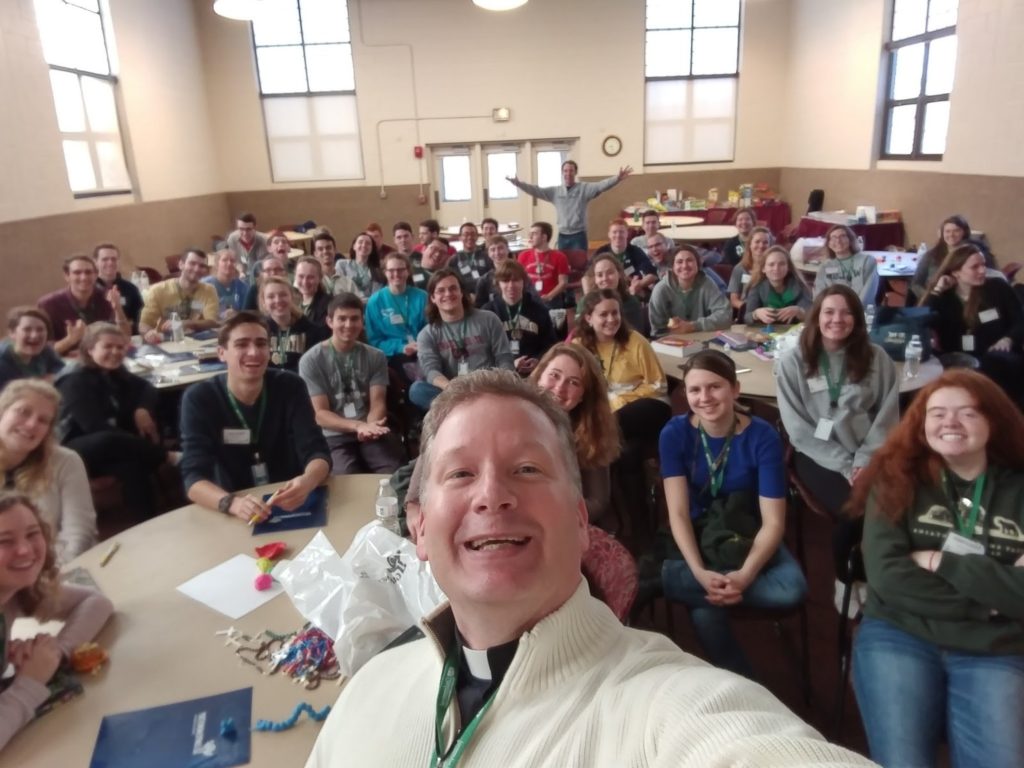Allie Greene, Assistant Director of Liturgy
I sat in the Basilica alone on a freezing winter evening, in need of a quiet place to pray. I chose a pew, sat down, crossed my arms, and glared daggers at the tabernacle. My silent prayer went something like this:
“Really – nothing? It’s been months. Which part of my prayer was unclear? I’m out of patience and so tired of this. No more gentle ‘I trust in your will’ prayers. It’s your turn.”
Both satisfied in my silent reproach of God and defeated that I had come to that point, I genuflected and exited the church. It wasn’t my finest moment of trust in God’s providence and grace.
It was, however, one of the most honest moments of prayer I’ve ever experienced. Before then, I believed that giving my intentions over to God would feel good-natured and graceful, easy to do with answers to follow quickly. I was wrong: it felt more like exhaustion from running out of other options.
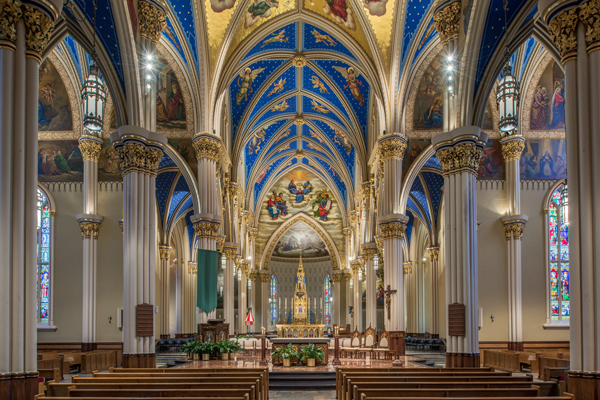
The answer to why I minister is rooted in my experience of prayer. I try to be a faithful disciple, and I hope to help our students do the same, to grow in faith here at Notre Dame and far beyond. Specifically, my ministry is to help our students to pray well together, and there’s a phrase I use to describe this work: serious joy.
It’s serious because this ministry is no small task: to teach students how to pray and how to lead communal prayer, to offer formation as they plan Masses and prayer services, and to encourage them to grow in their faith long after they leave Notre Dame.
At the same time, this ministry is abundantly joyful. I’m privileged to see what happens when students — while praying together — encounter God. I hear them give reflections on Scripture and listen as their words bring new light to old passages. I watch as students give their time, energy, and boundless courage to lead music during their hall’s Sunday Masses. I see their heads bowed, eyes lifted, hands folded, hugs of peace, and other postures and gestures of prayer expressed. It’s a true joy to pray with, for, and among our students.
I have a personal investment in working with students to plan liturgies because it was in the Mass that God and I first found each other. In effort to grow in faith, I’d gone on service trips, attended many retreats, and prayed with Scripture; however, it was in Mass that I first encountered God and that encounter is what compelled me to return.
At different points in my life, I’ve found great comfort at Mass — even if I’m distracted, even if I don’t know the songs, and even if I only caught the opening line of a homily before my mind raced in another direction. I have strong memories of events that took place in the context of Mass, some monumental and some rather routine: I’ve witnessed my college friends become ordained priests, and received chrism oil on my forehead at Confirmation; I’ve run straight from the lake to church on a summer Saturday, and celebrated the beautiful sacrament of my sister’s wedding. Like my prayer, Mass takes different forms and shapes, but it is a constant in my life. Mass was both fifteen-minutes before starting my high school day and the three-hour Vigil on the night before Easter. Mass sounds like a packed residence hall chapel of women’s voices and like echoing silence after communion in a French cathedral.
Truthfully, going to Mass doesn’t always feel like the most thrilling activity in which I participate. I can’t compare it to rollerblading, kayaking, or watching Notre Dame football. But I don’t go to Mass because it’s always thrilling. I go to Mass to meet God there, again and again. And I keep going back because of what the liturgy compels me to do after: to be God’s hands, feet, voice, and love in the world.
I’m grateful for this ministry in helping students to pray well together. I hope that they will always want to return to God in different moments of prayer, as I do, and never to be far from that encounter.
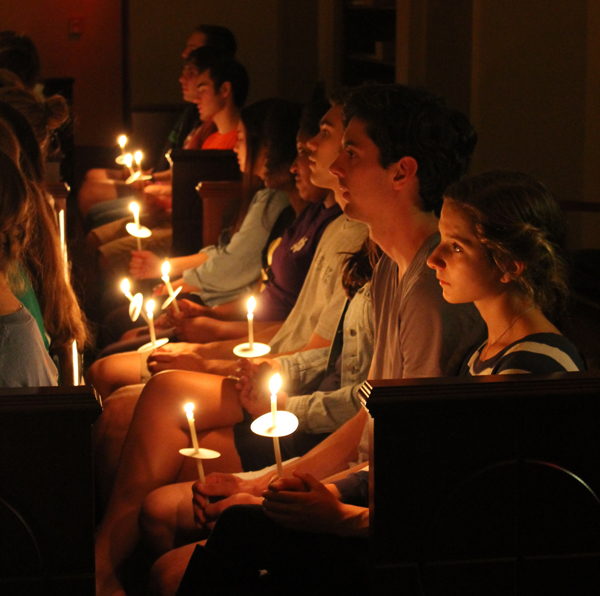
About a month later, I felt overwhelming gratitude when I received an answer to my despairing, wintry-day prayer. So I returned to that same pew in the Basilica, this time for a different style of prayer. I found there a place to pray when I was exhausted and felt unheard, so it made sense to go back when I was grateful and filled with hope. I was honest with God before in my pain and confusion, and honest with God again in amazement and joy. I minister with the hope that our students will do the same and find faith in the constancy of God’s love, particularly in the way it is revealed to us through the Mass.

